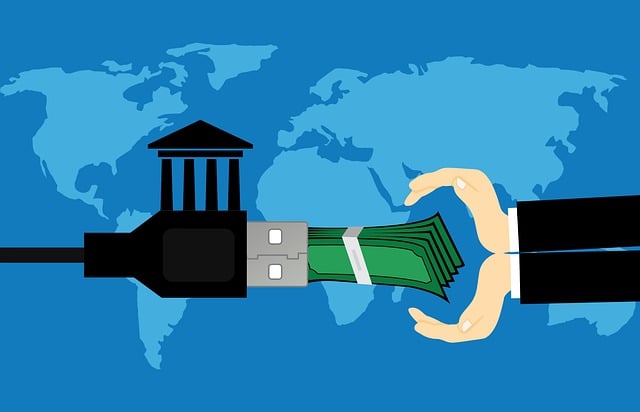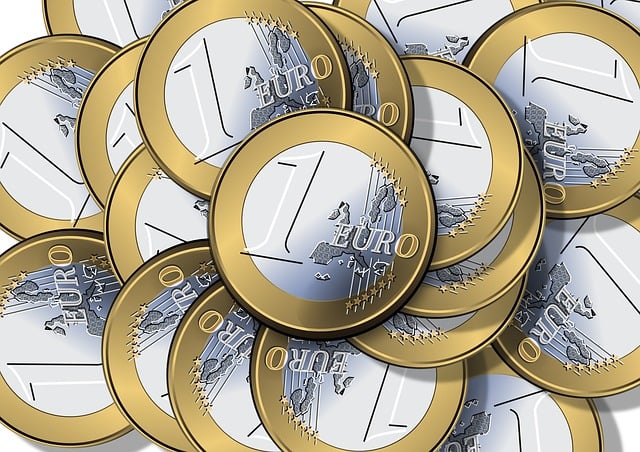Mastering Effective Depositing Money Strategies

Modern depositing methods include online banking for easy tracking, mobile wallets for instant payme…….
In today’s interconnected world, the act of depositing money has evolved into a complex yet vital process that forms the backbone of global financial systems. This article aims to delve into the intricate details of depositing money, exploring its historical foundations, current practices, and future trajectory. By understanding this fundamental aspect of finance, readers will gain insights into how their monetary transactions contribute to economic growth, international trade, and personal wealth management.
Definition: Depositing money refers to the process by which individuals or entities transfer funds from one account to another, typically from a savings or checking account to a designated receiving account, such as a bank account for payments, investments, or savings. This transaction involves the movement of monetary assets, often facilitated by financial institutions and supported by digital technologies.
Core Components:
Historical Context: The concept of depositing money has evolved over centuries, from barter systems to the introduction of coins and banknotes, and eventually, to modern digital transactions. The development of banking institutions and their regulatory frameworks laid the groundwork for secure and standardized money deposits. With the advent of the internet and mobile technologies, online banking and digital wallets have revolutionized the way people deposit and manage their money, offering unprecedented convenience and accessibility.
Significance: Depositing money is a cornerstone of personal finance and economic activities:
Depositing money has a profound impact on the global economy and financial systems worldwide. Here’s an overview of its international influence and key trends:
| Region | Impact and Trends |
|---|---|
| North America | The United States and Canada have well-established banking systems with a high adoption rate of digital banking. Online deposits and mobile payments are on the rise, driven by consumer demand for convenience. |
| Europe | The European Union’s Single Euro Payments Area (SEPA) initiative has streamlined cross-border transactions, making it easier for individuals and businesses to deposit funds internationally. Digital wallets and peer-to-peer payment apps are gaining popularity across the region. |
| Asia Pacific | China and India have witnessed rapid growth in mobile banking and digital payments. The use of mobile wallets and QR code payments has revolutionized cashless transactions in these countries. This trend is expected to continue, driving financial inclusion efforts. |
| Middle East & Africa | The region is seeing a surge in digital banking adoption, particularly in the Gulf Cooperation Council (GCC) countries. Mobile money services are gaining traction, providing financial access to underserved populations. |
| Latin America | Online banking and digital payments have been expanding, but cash remains prevalent. Governments and central banks are promoting financial inclusion through innovative solutions like mobile ID systems. |
Key Global Trends:
Online Banking: Most banks offer online banking platforms, allowing customers to check balances, transfer funds, and deposit cheques or cash electronically. Real-time transaction alerts and secure login mechanisms ensure user safety.
Mobile Banking Apps: Mobile applications provide users with easy access to their accounts, enabling them to make deposits, pay bills, and monitor spending on the go. Push notifications and biometric authentication enhance security.
Contactless Payments: NFC (Near Field Communication) technology enables contactless transactions using mobile devices or smart cards. This method is popular for in-store purchases and has gained momentum during the COVID-19 pandemic due to its hands-free nature.
Automated Teller Machines (ATMs): ATMs remain a crucial channel for cash deposits, withdrawals, and balance inquiries, offering convenience and 24/7 access to funds. Modern ATMs support advanced features like mobile deposit capture and cardless transactions.
Check Deposits: While digital methods are preferred, checks remain a common way to deposit funds into bank accounts. Many banks offer remote deposit capture services, allowing customers to upload checks via their mobile apps for processing.
Security Measures: To combat fraud, financial institutions employ:
The future of depositing money is likely to be shaped by technological advancements, regulatory changes, and evolving consumer preferences. Here are some potential scenarios:
Depositing money has evolved from a simple transaction to a complex process facilitated by advanced technologies and robust regulatory frameworks. As the financial industry continues its digital transformation, individuals and businesses worldwide benefit from increased convenience, security, and access to financial services. Understanding these developments is essential for staying informed about personal finance, participating in the global economy, and embracing the opportunities offered by the digital age.

Modern depositing methods include online banking for easy tracking, mobile wallets for instant payme…….

Depositing money has diversified with technology offering online platforms, mobile apps, and various…….

Depositing money involves transferring funds to a bank for various purposes. It begins with choosing…….

Understanding various depositing methods allows individuals to make informed financial decisions bas…….

Selecting the best depositing money sites requires prioritizing ease of use and secure banking metho…….

When choosing depositing money sites, prioritize security (advanced encryption), ease of use, compet…….

Depositing money involves gathering funds and selecting an account type, then presenting them to a b…….

Depositing money involves choosing a banking institution and setting up an account with necessary do…….

The online banking landscape offers diverse options for depositing money, catering to varied needs……..

When depositing money online, balance security and user experience by choosing platforms with advanc…….